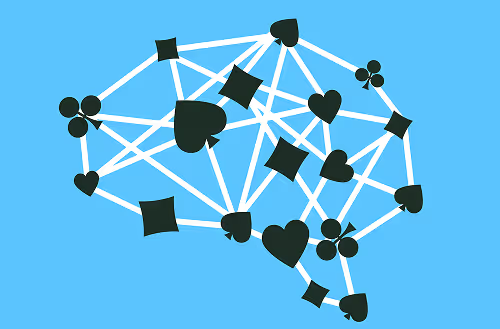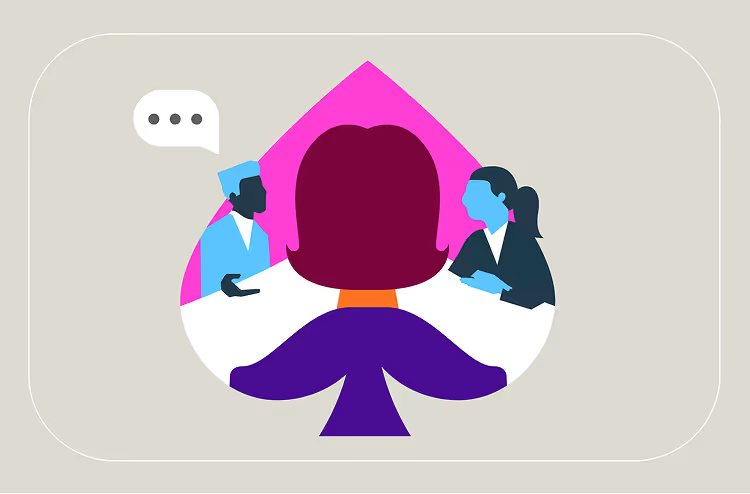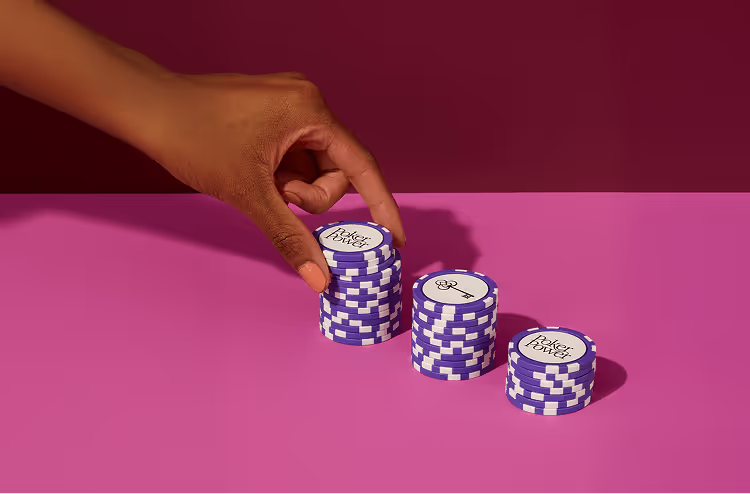As featured in












Poker Power's Impact
Yvette's daughter created her own PP club at her high school and had a very positive experience in doing so.
Yvette G. Daughter
To be successful, I have to be assertive, confident, and a risk-taker. Poker has helped me hone these skills. I am a better negotiator, an excellent patient advocate, and a confident clinician thanks to my poker skills.
Usha P.
My experience of Poker Power has been very positive, very educational, and empowering; and not just actual poker playing, but in cultivating a sense of self in general.
Youmna R.
I have been a business owner for almost 20 years. Many qualities that make a great business owner also make a great poker player like discipline, patience, risk analysis, networking, and plenty of determination.
Tammi E.
I love poker because of its complexity, as well as the sense of challenge and competition it brings. I became a Poker Power teacher in order to show the benefits of this game to all women and present poker as it should be—a unique game of skill and strategy.
Sarah S.
As a mergers and acquisitions lawyer, I’d spent many years working on negotiations, so I thought I knew a lot about the art of making deals; yet once I started learning how to play, I could immediately see applications that related to my job: when to go all in, when to fold, how to recognize tells.
Rachel S.
Poker Power has really taught me how to be confident and to use those skills that I learned on the table, off the table.
Neha P.
I’ve joined Poker Power taking the unique decision-making in poker and applying it to business strategy and everyday life.
Melanie W.
Just as we are reading the table in poker, we are reading the room at work and in life. Poker has enhanced my emotional intelligence and has been teaching me to be comfortable in taking risks.
Monica D.
Playing in a live tournament after Poker Power’s lessons was so exciting and empowering. I got to apply so many of the learnings around confidence, tournament strategy, and value that made the difference in getting to the final table and winning!
Mary S.
The skills women are learning through poker have direct applicability to their work as entrepreneurs and investors, and the game has proven to be a great foundation for deal-making.
Martina W.
This was absolutely empowering. I walked away feeling ten times more confident, just from learning how to play poker. It was interactive, informative, and incredible to see how a mindset shift can change my outlook in a professional setting.
Madison S.
I like knowing how to play poker because when I went to go play with the guys, one of them didn’t know how to play, and I got to show off that I could play.
Lucie H.
I learned to have meaningful conversations with my 13-year-old daughter. Now she’s learning to play and gaining skills for her journey to adulthood.
Lindsey E.
I like the social aspect of being a part of the Poker Power club, but I am also improving my critical thinking skills. I had always thought of poker as a game that cowboys play, but I was wrong. It really is about risk and reward.
Lan Q.
Poker has made me step more out of my comfort zone and take more risks such as applying to more adventurous jobs outside my major.
Karen G.
I have issues with taking risks. Poker Power has improved my skills and taught me when to take risks and why it’s important to do so.
Karen S.
As a female founder, I am tired of the rhetoric about empowerment and equality, but your program actually does empower women…I’ve noticed how the program has helped me in negotiations.
Julie L.
A woman who plays poker is one who is confident and one who is not afraid to take risks because she knows the return.
Journee L.
I got involved with Poker Power as soon as I saw their mission statement—teaching one million women poker skills that can also be applied to life.
Hannah F.
Poker requires the high level of emotional intelligence women need across many business contexts, especially ones that are high-pressured and emotionally charged. When playing poker, one needs to be aware of how one is feeling and manage those emotions so they don’t get the best of you.
Gail B.
I joined Poker Power because as a women’s right advocate, their mission really resonated with me of giving women a seat at the poker table, which is a space typically dominated by men.
Gabby A.
Playing poker helps in knowing when to act. In business, you’ll encounter situations where you want to set the tone, and you should act first. In poker, the first-mover advantage can set the stage for the discussion.
Erin S.
Adding the indomitable spirit of female camaraderie to this game through Poker Power has been a blessing beyond compare because I am now able to share this amazing game and it’s gifts with so many fierce females – my poker sisters.
Deanna W
Everything we can do to raise those voices and get a seat at the table. That’s what really draws me to the mission of Poker Power because I think we represent a big piece of the population.
Cynthia D.
The best part of honing your poker skills is discovering a window into the universe of math and probability and really being able to philosophically come to terms with risk and reward in your own life.
Alexandra C.
I tend to be passive and noticed that was my first instinct. Learning from a female poker pro makes a difference! It gave me and my daughter more confidence and business skills.
Ann R.
I think as a female we tend to be risk adverse. But Poker Power has really taught me to be more confident in my decisions and play the game of poker more aggressively, which has really translated to life.
Abby M.
Poker allowed me to step out of the box of being a young twenty-something girl and into being a force to be reckoned with!
Amanda B.
I like how the focus was on helping women empower themselves. The program combined poker instruction with parallels to each woman’s individual professional journey. I appreciated how each breakout room had a facilitator so that the attendees weren’t left to figure it out on their own.
Caitlan E.
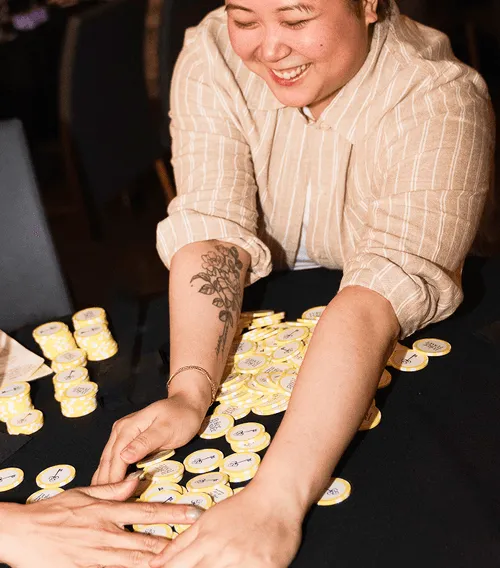



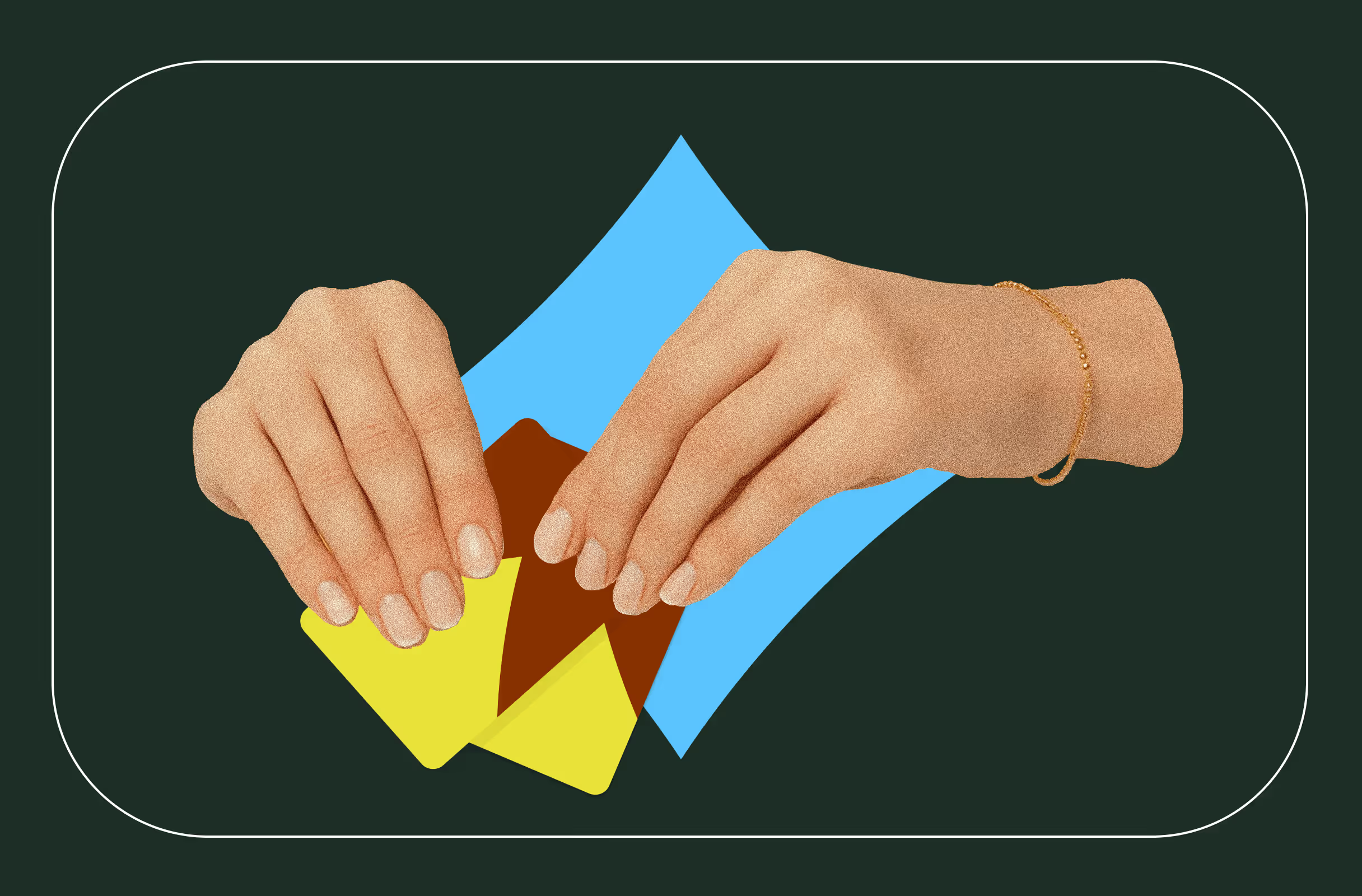
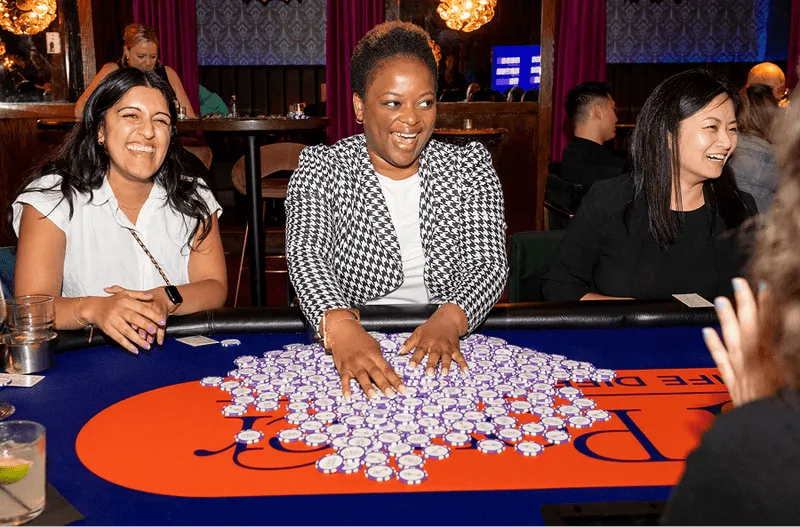
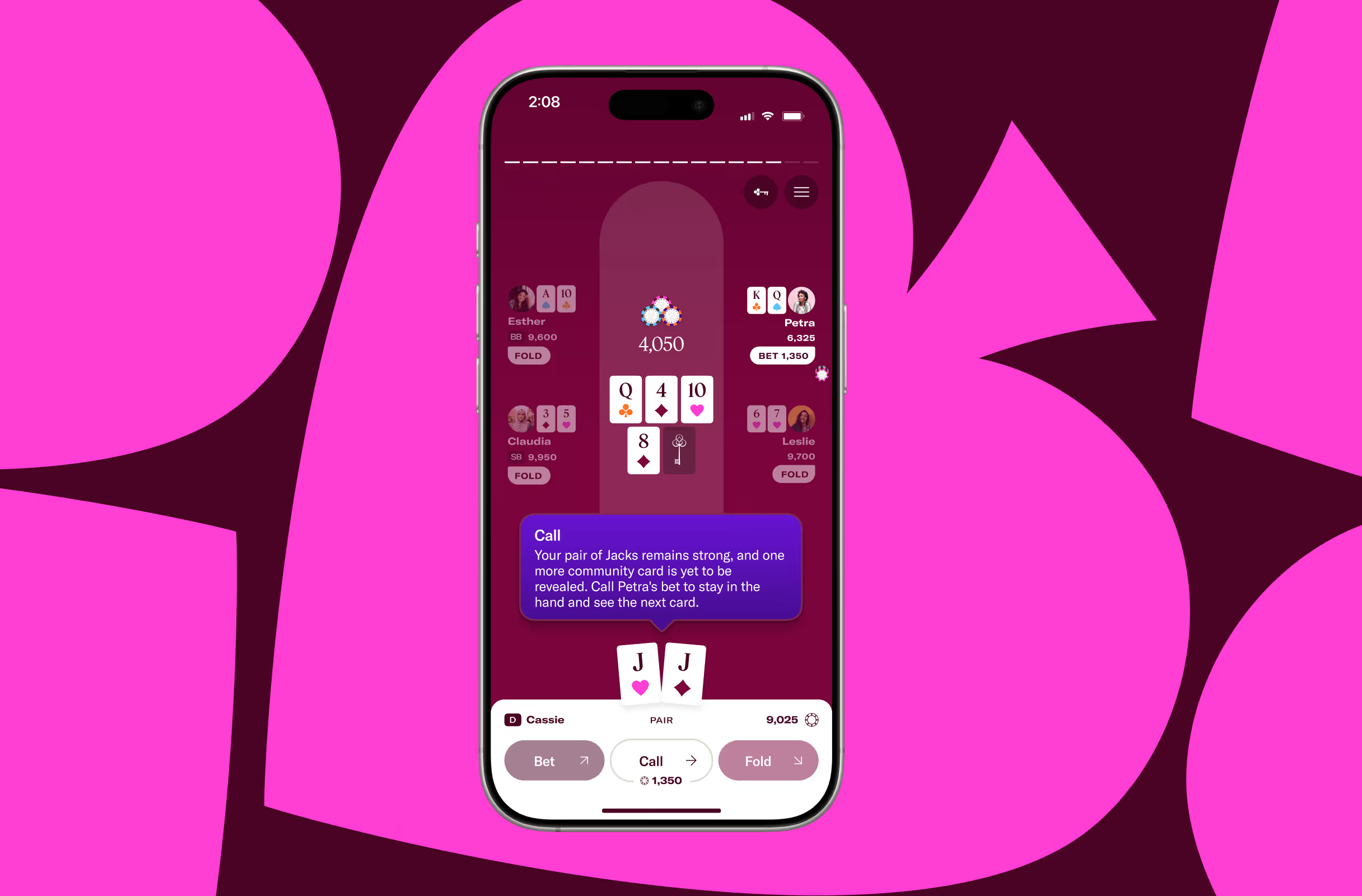
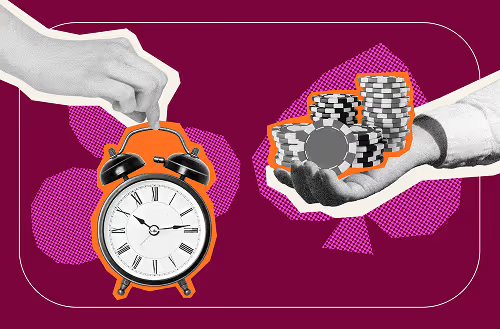
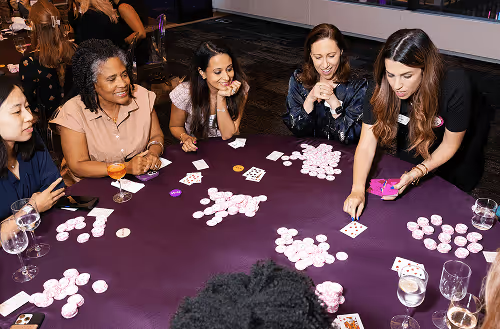
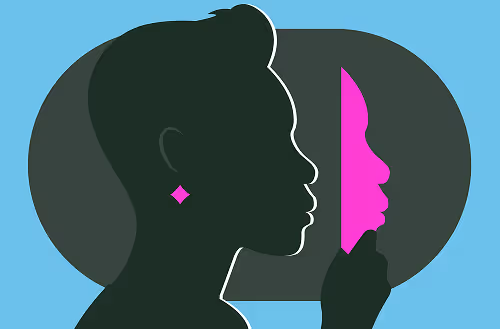
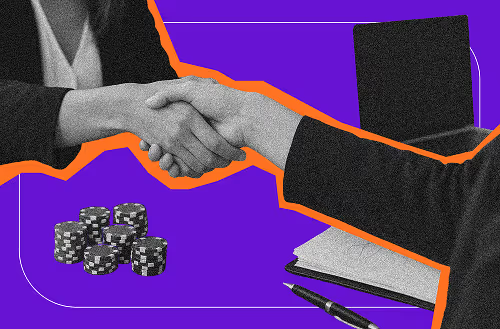
_thumb-min.avif)
_thumb-min.avif)
